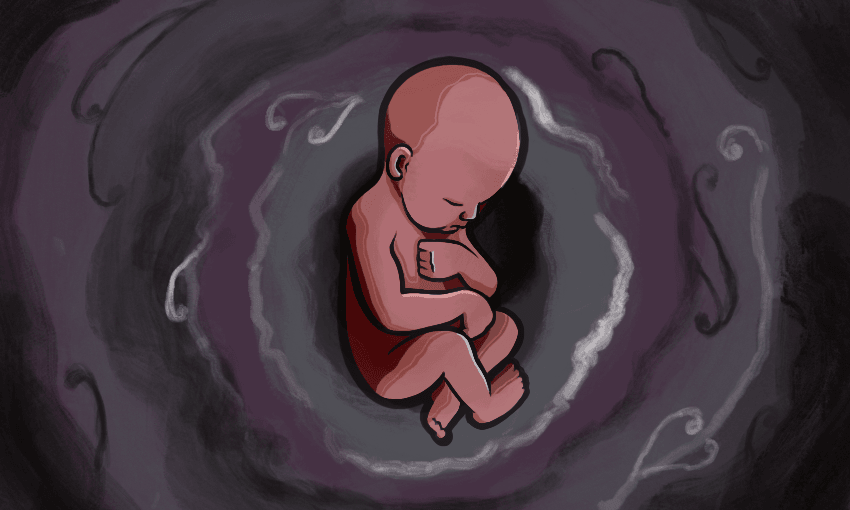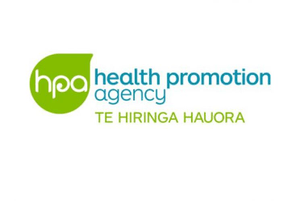The challenges of postnatal depression are increasingly part of our conversations around birth. But too often the mental distresses encountered while pregnant are misunderstood or unspoken.
I didn’t know about antenatal anxiety until I had it. I’d been concerned about postnatal depression, and prepared to handle it as best I could. But I’d never heard of mental distress occuring during pregnancy.
When I look back, some of my thoughts and feelings showed really clearly that I was distressed. I was obsessed with counting the movements of my baby because I thought he was dying inside me. I thought sleeping might hurt him so I used to try and stay awake all night. I was convinced he didn’t want me to be his mother. These are obviously not the thoughts of a healthy person.
But other thoughts were more subtle and insidious. I cried in the shower most days. I put this down to hormones – but actually, you shouldn’t cry that much while you’re pregnant. I put a lot down to hormones when what I was actually experiencing was anxiety – feeling worried every day about finances, how we would manage, what kind of parent I would be with two children. It is normal to worry a little bit; but if you’re constantly worried, it could be a sign of something bigger. I felt emotionally numb a lot, it was hard to make a connection with my baby.
I had a lot of feelings about my upbringing. I think it’s normal to consider how you were raised when you’re about to start a family – but you should be able to process those issues fairly easily. If your feelings around this have a weight too heavy for you to carry, you should talk to someone.
I’m lucky that I was able to talk to someone. I had help and it saved me.
Perinatal Anxiety and Depression Aotearoa (PADA) says up to one in 10 women and one in 20 men experience antenatal depression. Anxiety is thought to be as common, and many parents experience anxiety and depression at the same time.
“It is normal to experience a degree of anxiety and ‘ups and downs’ when expecting a baby. However, some people develop a more pronounced anxiety or lower mood (depression) which affects their daily life and functioning,” says PADA general manager Treena Cooper.
A number of factors can contribute to the development of perinatal anxiety and depression.
“There is sometimes a history of anxiety and depression, a family history of mental illness, previous infertility, or miscarriage, termination, stillbirth or the death of a baby. Sleep deprivation can also be a cause, along with physical illness or chronic pain. Financial or relationship stress can also be a trigger. Lack of social support, family violence, childhood trauma or neglect, grief – these can all be factors for a parent developing antenatal depression and anxiety.”
I went online and asked a private group of mostly mothers if any of them had antenatal depression or anxiety. Within an hour I had dozens of emails. The stigma around any kind of mental health challenge is strong – and for mothers it feels even stronger.
Most of the women I spoke to didn’t want their names included in this article despite the fact that they had recovered. There’s a fear, even if you’re well now, that you could be punished for your openness.
I remember when I finally sought help during my second pregnancy. I was worried my child might simply be taken away if I admitted I was extremely anxious. Māori babies are five times more likely to end up in state care than non-Māori, a rate that has doubled since my first baby was born. It’s understandable many parents worry about speaking out.
Huia, 34, from South Auckland was 20 weeks pregnant when she felt like she began to “lose control”. It began with sleepless nights.
“I started researching childbirth. Not in a normal way, but in a reading-medical-research-papers-at-2am kind of way. I was convinced something awful was going to happen to me,” she says.
Her turning point came when her GP referred her to Maternal Mental Health. She felt she was able to ask for help because of the trust she had in her GP.
“I walked in and told him I wasn’t feeling excited about this baby and burst into tears. He knows me well and knew something was wrong and referred me straight away.”
She feels lucky to have got the help she needed. She didn’t feel supported by her midwife, who – although lovely – didn’t seem equipped to deal with her mental health concerns.
“I am so appreciative that my GP didn’t brush me off and I’m lucky I met the criteria to access Maternal Mental Health. A different day, a different GP or a different DHB and maybe I wouldn’t have received that help.”
Aurora, 33, from Wellington was 22 weeks pregnant with her second child when she first noticed symptoms of antenatal depression. At first she thought it was just normal pregnancy tiredness and hormones.
“I started feeling really exhausted and lacked the will to do more than the basics of caring for myself and my toddler. On the weekends when my husband wasn’t working I would spend the whole day in bed, totally numb and devoid of any desire to do anything.
“The thing that really scared me, though, was the mood swings. I would go from fine to full-on rage in a matter of seconds sometimes, which left me feeling sick with myself and scared I might do something to my toddler.”
Waiting for a midwife appointment, Aurora saw a PADA pamphlet on antenatal depression – it described rage as one of the symptoms. That pamphlet was a catalyst for her seeking help. She took it into her appointment.
She brought up her concerns on the spot. Her midwife advised her she would probably get treatment faster if she went through her GP, and her GP in turn suggested she see PND Wellington (now Little Shadow).
“So I called them and started seeing one of their counsellors.”
After Aurora’s third session with a Little Shadow counsellor, her depression became more controllable. By the time she gave birth she was no longer showing symptoms.
“I think I was really lucky to catch it before it spiralled too much – and that I had a great counsellor”.
Huia recalls that she was screened for domestic violence multiple times in the hospital after she had her baby, but she was never asked how she felt about the birth of her child. She wants to see change throughout the system that helps women recognise the symptoms of perinatal mental distress.
“I honestly believe if we were supported better before and after childbirth, a lot of mental health problems wouldn’t be as prevalent or as severe,” she says.
Too often, symptoms of antenatal mental health strains just aren’t recognised. Little Shadow director, Vic Parsons, says there is more awareness required about the intricacies and nuances of what perinatal anxiety and depression looks like.
“There is such a broad spectrum of experiences that sit within this diagnostic umbrella – yet only a couple that might be commonly recognised, discussed or known. Usually there is more exposure to extreme or harmful stereotypes and sensationalist stories.”
She wants to see more conversations designed to allow interventions that act as a “fence at the top” to help identify the experiences when they’re happening and allow women to get support quickly.
“I think there is so much space for conversations about how to support each other and ourselves, and how the systems (health systems, institutions, structural racism, sexism, workplace discrimination in the parenting space) we live within can support us better.”
Mental health and wellbeing should be woven into all of our interactions and relationships professionally and personally as a part of the whole, Parsons says. Allowing those conversations to happen creates an opportunity to prevent the worst outcomes.
“Our mental health and wellbeing are affected by multiple parts of our world, and are complex and unique in each person,” she says.
Training health providers to support the unique needs of different people experiencing mental health distress is an important part of raising awareness around the issue. This includes cultural literacy, working in partnership, consent during pregnancy (for example, talking through options and giving consent to interventions), birth and labour, trauma-informed care and communication.
“I know this happens and is great in lots of spaces but would be even better as a minimum standard across the board. I’d like to see intentional support of existing community spaces – resourcing people who already do this mahi and create safe inclusive spaces for parents.”
Parsons would like to see mental health support normalised for all women during pregnancy.
“It’s incredibly complex to achieve –- because what we are really asking for there is a complete culture shift.”
The mothers I spoke to agreed. The answers aren’t as simple as “ask the pregnant person if she’s OK”. They suggested a huge range of ways we can all help pregnant mothers from respecting physical boundaries and not touching pregnant bellies or babies without consent to learning about hormonal and brain changes – as well as workplaces having realistic expectations and flexibility for new parents, and people not telling birthing horror stories.
“We need to acknowledge the transformative and life-changing process that welcoming a baby into the world is,” Parsons says.
“I want to see a deliberate recognition of the importance of it, and recognition that we need to be processing it carefully and with the right support.”
Looking for support? It’s available:
Need to talk? Free call or text 1737 any time for support from a trained counsellor
Plunket. Need free support or advice? Call PlunketLine 24/7 on 0800 933 922
The Postnatal Distress Support Network Trust
PADA (Perinatal Anxiety & Depression Aotearoa)
Depression helpline: Freephone 0800 111 757
Healthline: 0800 611 116 (available 24 hours, 7 days a week and free to callers throughout New Zealand, including from a mobile phone)
Lifeline 0800 543 35
Samaritans – 0800 726 666
Ministry of Health online self-test

